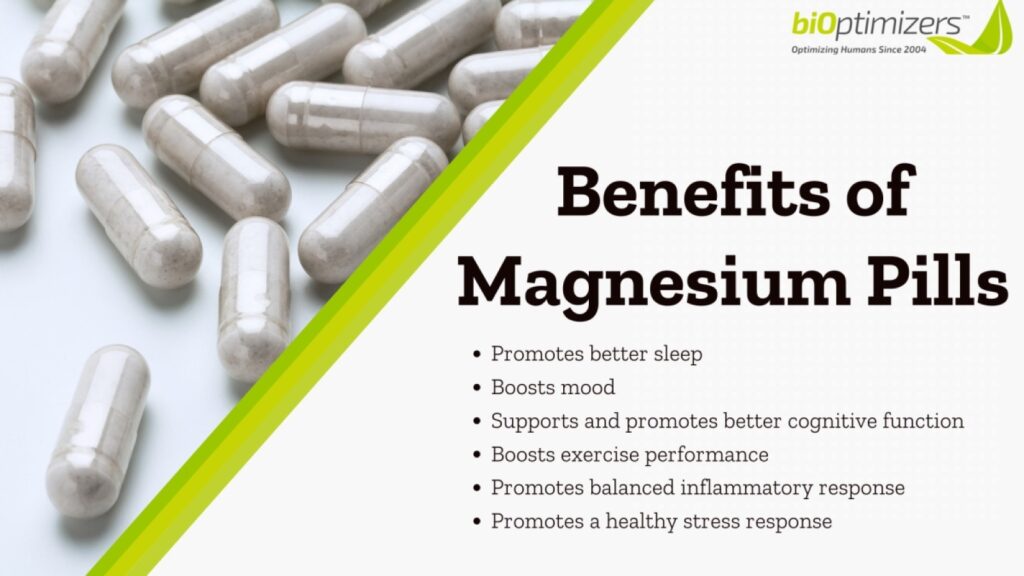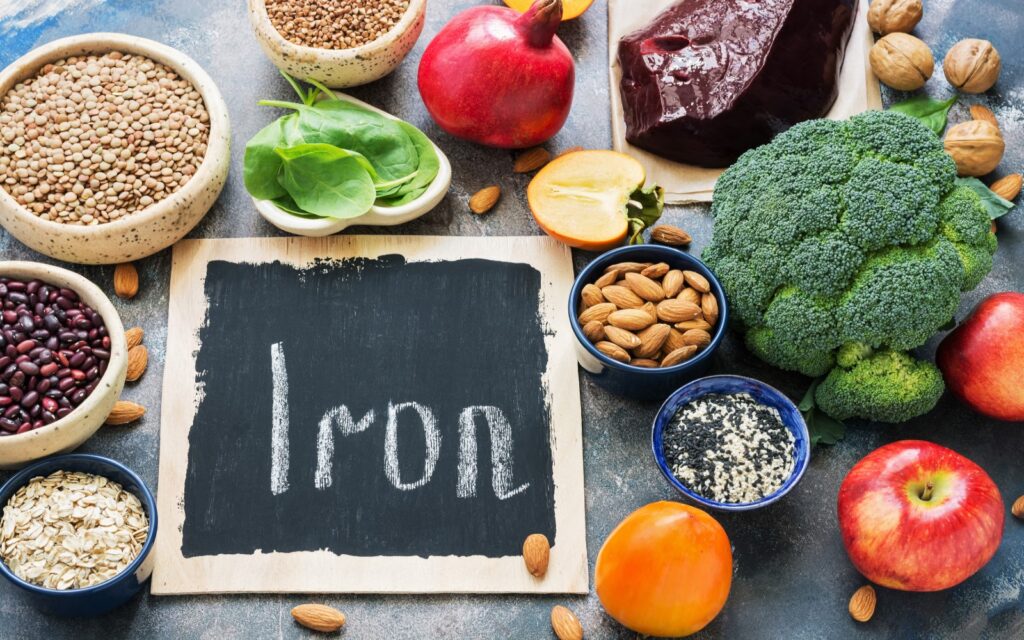
Feeling tired after physical or mental exertion is normal. However, constantly feeling exhausted, lacking energy and relying on coffee just to function is not. This article explores common, less severe causes of fatigue that can usually be managed naturally by making changes to lifestyle habits, diet and supplements.
This indicates that something may be wrong. Common causes might include [1]:
• Stress
• Poor sleep or lack of sleep
• Anemia
• Diabetes
• Problems with the thyroid gland
• Mitochondrial dysfunction
The good news is that you can address these causes naturally. However, it’s essential to see a doctor first to rule out any serious underlying conditions.
Mitochondrial Dysfunction
Mitochondria are small, membrane-bound organelles in our cells responsible for producing energy in the form of ATP. Increasingly, their role in human health and disease is being recognized due to their critical function and location within cells. [2]
Fatigue is a hallmark symptom of mitochondrial dysfunction because your cells cannot produce enough energy. [3]
A study aimed to identify biochemical differences between 73 patients experiencing fatigue and 51 healthy individuals. Researchers measured ATP levels in five different ways and compared the results between the fatigued patients and the healthy individuals. The findings revealed distinct biochemical profiles between the two groups. Researchers also observed that the more dysfunctional the mitochondria are, the more severe the fatigue. [4]
Stress
Fatigue results from oxidative stress, which impairs orexin and mitochondrial functions. This reduced mitochondrial function leads to fatigue. Orexin is a protein that regulates arousal, wakefulness, and appetite.
Fatigue is often linked to physical and mental stress. Stress can disrupt the nervous, hormonal, and immune systems, resulting in fatigue. Experiencing multiple stressors can lead to emotional and mental exhaustion.
Stress also increases oxidative stress, which disrupts mitochondrial function and leads to fatigue. Oxidative stress is an imbalance between the production and accumulation of reactive oxygen species (ROS) in cells and tissues and the body’s ability to eliminate these toxic species. [5][6]
Nevertheless, fatigue is a common feature of stress-related mental health problems. [7]

Depression
Depression can leave you feeling too weary to do anything, a common experience for many who struggle with low moods. When your mood drops, your energy levels often follow, leading to sensations of sadness and emptiness that exacerbate feelings of exhaustion.
Depression differs from case to case, with the following factors as contributors:
• Circadian rhythm dysregulation and poor sleep [8]
• Abnormal stress response [9]
• Nutrient deficiencies [10]
• Mitochondrial dysfunction and low thyroid function [11]
• Hormonal dysregulation
Moreover, mitochondrial dysfunction is a major contributor to fatigue. This issue often exacerbates depression, which in turn leads to increased feelings of tiredness and diminished energy levels. [3]
If you suspect you might be dealing with depression, it’s important to consult a doctor for a proper diagnosis and treatment. In the meantime, addressing the lifestyle factors mentioned can positively impact both your mood and energy levels.

Anemia
Anemia is characterized by a reduced number of red blood cells and hemoglobin, which are essential for transporting oxygen to your cells. Often, anemia is a sign of an underlying condition rather than a standalone diagnosis. [12] Since oxygen plays a crucial role in mitochondrial energy production by accepting electrons, insufficient oxygen delivery can heighten oxidative stress and lead to fatigue.
When hemoglobin falls below 7.0 g/dL, most patients have anemic symptoms, including [13]:
• Weakness
• Tiredness
• Lethargy
• Restless legs
• Shortness of breath
• Chest pain and reduced exercise tolerance
Iron deficiency anemia
Iron deficiency anemia occurs when there is inadequate iron intake, impaired iron utilization, or excessive loss of iron. This deficiency hampers the body’s ability to produce sufficient red blood cells. [14] Hemoglobin needs iron to function effectively, which is why iron deficiency is the leading cause of anemia globally. [15]
Symptoms of iron deficiency anemia include:
• Extreme fatigue
• Cold hands and feet
• Brittle nails
• Weakness
• Pale skin
• Headaches
• Chest pain
• Fast heartbeat
• Shortness of breath
• And inflammation of your tongue
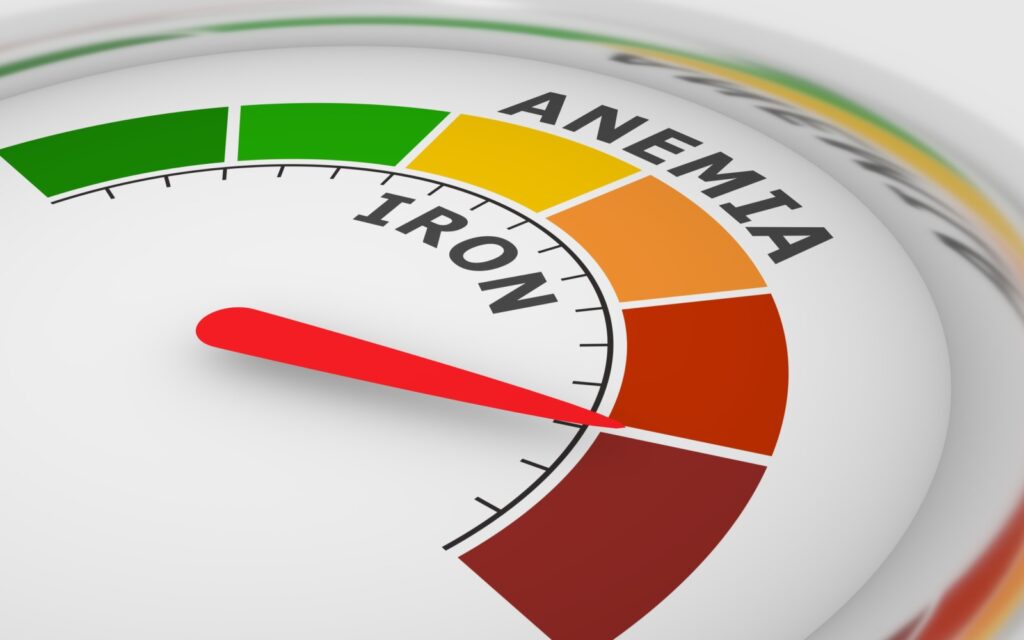
Vitamin Deficiency (B6, B9, B12)
A deficiency in vitamin B12 and folate can result in anemia, specifically megaloblastic anemia. This condition is marked by the presence of enlarged red blood cell precursors, known as megaloblasts, in the bone marrow. These megaloblasts are ineffective at transporting oxygen.
Vitamin B12 functions as a coenzyme in DNA synthesis and fatty acid metabolism. Therefore, a deficiency in B12 can result in both hematological and neurological symptoms. [16]
B12 causes pernicious anemia, a type of megaloblastic anemia. Symptoms of this type of anemia are [17]:
• Fatigue
• Shortness of breath
• Dizziness
• Lightheadedness
• Abdominal bloating
• Weight loss
• Loss of appetite
• Diarrhea
• Decreased cognitive and physical functions
Anemia From Inflammation
Anemia of inflammation is the second most common type of anemia. It primarily affects individuals with conditions that cause chronic inflammation, such as bacterial or viral infections, autoimmune diseases, cancer and chronic kidney disease. [18]
In anemia of inflammation, blood iron levels are low despite normal or even elevated iron levels in stored tissues. This occurs because inflammation can hinder the body’s ability to utilize stored iron for the production of healthy red blood cells. [19]
Symptoms of anemia from inflammation include:
• Feeling tired or weak
• Body aches
• Pale skin
• Shortness of breath
• Getting tired easily
• Fast heartbeat
• Dizziness
Other Anemias
There are other types of anemias. Some of them are [20][21][22][23]:
• Aplastic anemia – the body doesn’t produce enough red blood cells.
• Sickle cell anemia is – a genetic disease whereby the red blood cells have a sickle, crescent shape.
• Hemolytic anemias – the destruction of red blood cells is faster than their production.
• Thalassemia – a genetic disorder where the body has less hemoglobin than normal
If you’re experiencing persistent fatigue, it’s advisable to consult your physician for a blood test to determine if you have anemia, particularly iron-deficiency anemia. Many individuals with anemia also have low stomach acid, which can impair the absorption of non-heme iron and vitamin B12. HCl Breakthrough can increase your stomach acid, thus improving the absorption of nonheme iron and B12.
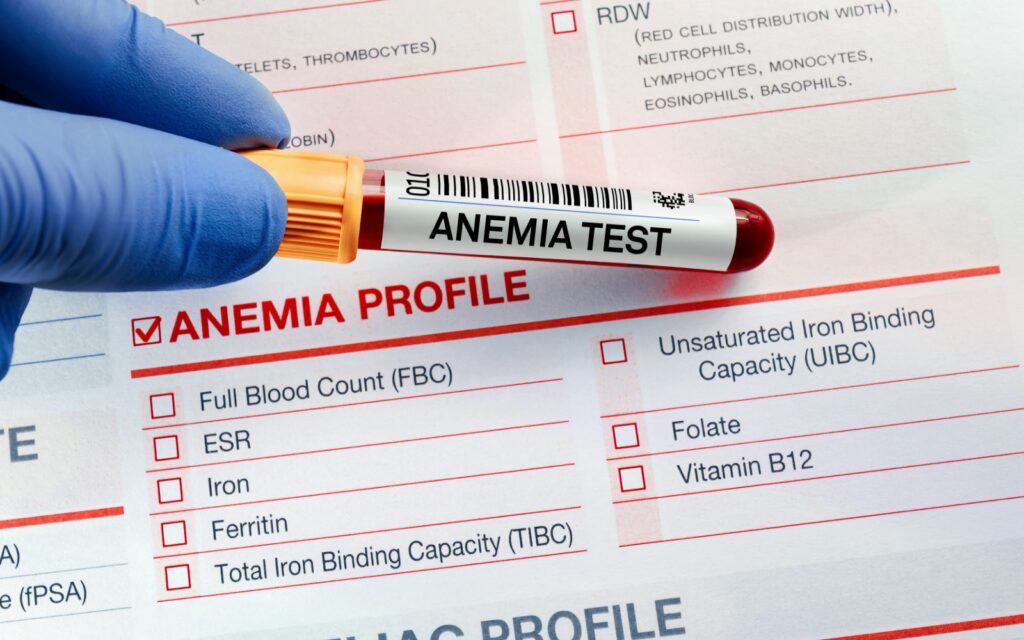
Diabetes And Insulin Resistance
Fatigue is a common symptom of diabetes and insulin resistance, as elevated blood sugar levels increase oxidative stress which impairs mitochondrial function. Additionally, blood sugar crashes caused by insulin resistance can also lead to feelings of fatigue. [24]
Problems With The Thyroid Gland
The thyroid gland produces hormones that control mitochondrial function. An underactive thyroid does not produce enough hormones, which can cause fatigue, lethargy, and many other symptoms [25][26]

Hypothyroidism is more prevalent in women, often developing after pregnancy or during menopause. If you experience excessive fatigue during these periods, it’s important to consult your doctor and get screened for hypothyroidism.
Poor Sleep Or Lack Of Sleep
Lack of sleep and poor sleep quality can lead to significant fatigue. Many people are unaware they have sleep issues. Although sleep habits play a crucial role in fatigue, other underlying conditions can also contribute to both fatigue and disrupted sleep. [27][28]
If you find yourself constantly tired despite adequate sleep or if you frequently wake up during the night, consult your doctor about undergoing a sleep study to check for conditions like sleep apnea or other sleep disorders.
Heart Conditions
Reduced heart function can lead to persistent fatigue, as the heart is responsible for circulating blood throughout the body. Individuals with heart conditions or compromised heart function may experience ongoing tiredness and feel unwell after physical exertion. [29][30][31]
So, if you’re always tired or sick after exertion, you should see a doctor to rule out heart problems. [32]
Tips To Boost Energy Levels And Fight Fatigue
Start by consulting a doctor to eliminate any serious underlying causes. Conditions like anemia, severe nutrient deficiencies, or thyroid issues can often be identified through a blood test. Your doctor may also check for heart conditions and cancer.

Improving Sleeping Habits
One of the primary contributors to fatigue is poor sleep quality. Inadequate sleep can result in low energy levels and a diminished mood throughout the day. Adults typically need between 7 to 9 hours of sleep each night. [33]
Often, our sleep habits are the root cause of poor sleep quality. By addressing and improving these habits, you can achieve more restful sleep. Removing six common sleep disruptors can significantly enhance your sleep quality.
Light
Blue light signals to your body that it’s time to wake up, while its absence indicates that it’s time to sleep. Since most electronic devices emit blue light, they can mislead your brain into thinking it’s still daytime, disrupting your natural sleep cycle.
Eliminating exposure to blue and bright light at night and sleeping in total darkness may improve your quality and quantity of sleep, thus making you more energized the following day.
Pressure
The body instinctively shifts positions when it detects blood flow restrictions. Side-sleeping often exerts pressure on your hips and shoulders, causing restless movements throughout the night. Memory foam mattresses can help alleviate this issue by providing better support.
Temperature
If your sleeping environment is too warm, your body may struggle to fall asleep. Lowering the room temperature can help you fall asleep more quickly by creating a more conducive sleeping environment.
Cortisol, Adrenaline and Noradrenaline
It’s often said that “Every hour of sleep before midnight is worth two hours” and there’s some truth to this. If you stay up too late, your body may experience a second wind, producing adrenaline and noradrenaline—hormones associated with the fight-or-flight response. This can disrupt your sleep and affect your overall restfulness.
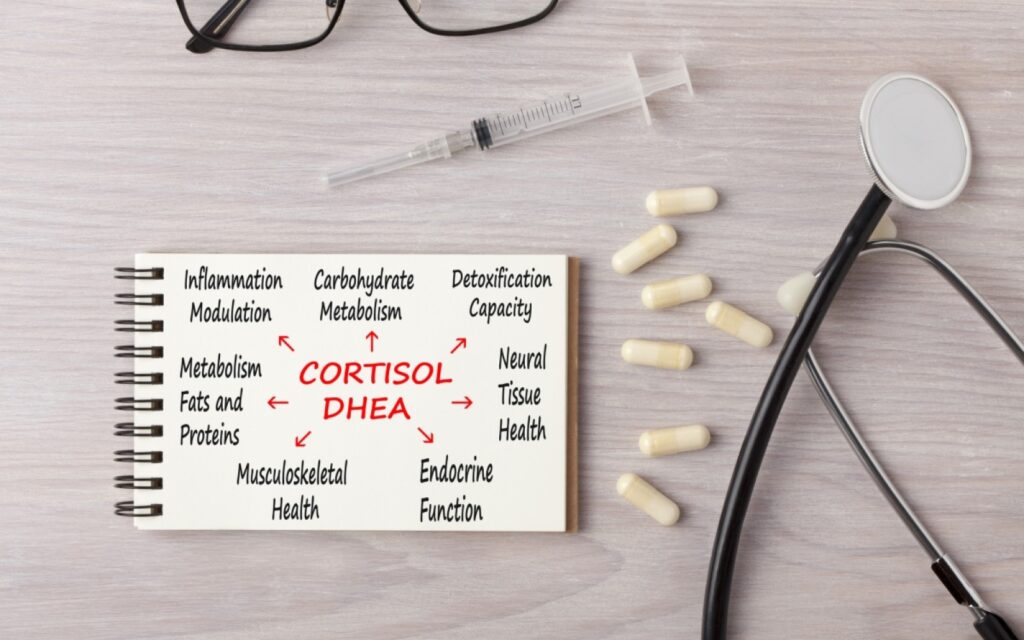
To maximize the benefits of your sleep, it’s ideal to go to bed before midnight. The period between 12 am and 3 am is crucial for the release of anti-aging hormones like melatonin, prolactin and growth hormones. If you’re not asleep by this time, you miss out on these beneficial hormonal processes.
The Full Belly
Eating before bed and having a full belly can affect your sleep quality and quantity.
Crazy Beta Brain Train, AKA Monkey Mind
The brain continuously generates electrical waves, categorized into five main types: gamma, beta, alpha, theta and delta. Among these, beta and alpha waves play the most significant roles in influencing sleep.
Most people are stuck in the beta wave. With beta waves, we are engaged, focused and thinking. If this wave goes high, it can cause anxiety.
The key is to establish a routine that calms the beta waves and transitions you into the more relaxing alpha state. Avoid engaging in stressful activities or working right before bedtime. Also, steer clear of stimulating content in the 2–3 hours leading up to sleep.
Instead, opt for calming activities like taking a bath, listening to soothing music, reading a book, meditating, foam rolling, or spending quality time with your partner. These practices help your body and mind unwind, setting the stage for restorative sleep.
If you try all of these and your sleep is not restful, or you suspect you may have a sleep disorder, speak to your doctor about it to refer you to a sleep specialist. Once they’ve ruled those out, it’s time to examine your diet and lifestyle.
Improving Diet And Nutrition Status
A poor diet can lead to fatigue through nutrient deficiencies and other nutrition-related issues. Insulin resistance, inflammation and poor digestion are examples of how diet-related problems can contribute to feelings of exhaustion.

Thus, adopting a healthier diet can boost your energy levels. Focus on increasing your intake of plant-based antioxidants and ensuring you consume adequate amounts of protein.
Poor blood sugar control and digestion can cause post-meal fatigue. Check out our blood sugar article to learn about balancing your blood sugar. To improve digestion, try MassZymes and HCl Breakthrough.
If you get inflammation from foods like gluten, eliminating them can improve your energy.
Supplementing With Energy-Supporting Nutrients
Additionally, vitamins and minerals play a crucial role in energy production. Therefore, deficiencies in these essential nutrients can lead to fatigue. [34] So, you can boost your energy levels by taking supplements that can address the root cause of your fatigue.
Magnesium
Magnesium is an essential mineral. It plays a role in more than 300 biochemical processes in the body, including mitochondria energy production. [35]
In a clinical trial, 20 patients with chronic fatigue syndrome and low red blood cell magnesium levels were compared with 20 healthy controls matched for age, sex, and social class. For 6 weeks, 32 of the patients received weekly intramuscular magnesium injections, while the remaining participants were given a placebo. [36]
Patients who received magnesium reported improved energy levels, enhanced emotional well-being, and reduced physical discomfort. Additionally, their red blood cell magnesium concentrations were restored to normal levels. [36]
Therefore, supplementation with magnesium can improve your energy levels and ease nervousness and a healthy stress response. Furthermore, magnesium improves sleep quality because of its calming effect.
The best way to combat tiredness is to change your diet and certain lifestyle habits. In addition, supplementation with energy supplements, magnesium pills, natural digestive enzymes, and other vitamins can help increase your energy levels.
B Complex
B vitamins are cofactors to cellular energy production that may improve mood and cognitive performance and relieve tiredness [34].
Vitamin B complex supplements typically include the following ingredients [37][38][39][40][41][42][43][44]:
• B1 (thiamine) – Thiamine is necessary for metabolism because it aids in converting nutrients into energy. Pork, sunflower seeds, and wheat germ are among the most nutritious foods.
• B2 (riboflavin) – Riboflavin is an antioxidant that aids in converting food into energy. Organ meats, beef, and mushrooms are high in riboflavin.
• B3 (niacin) – Niacin is involved in cellular signaling, metabolism, and the creation and repair of DNA. Chicken, tuna, and lentils are examples of food sources.
• B5 (pantothenic acid) – Pantothenic acid, like other B vitamins, helps your body obtain energy from food and is also involved in hormone and cholesterol manufacturing. Good sources include liver, seafood, yogurt, and avocado.
• B6 (pyridoxine) – Pyridoxine aids in amino acid metabolism, red blood cell synthesis, and neurotransmitter production. Chickpeas, salmon, and potatoes are high in this vitamin.
• B7 (biotin) – Biotin is required for carbohydrate and fat metabolism and gene expression regulation. Biotin is found in foods such as yeast, eggs, salmon, cheese, and liver.
• B9 (folate) – Folate is required for cell growth, amino acid metabolism, red and white blood cell production, and healthy cell division. It can be found in meals such as leafy greens, liver, beans, and folic acid supplements.
• B12 (cobalamin) – The most well-known B vitamin, B12, is essential for neurological function, DNA creation, and red blood cell growth. B12 is naturally found in animal products such as meats, eggs, shellfish, and dairy.
The latest randomized, placebo-controlled, double-blind, parallel groups experiment investigated the cognitive and emotional impacts of a high-dose B-complex vitamin and mineral supplement on 215 full-time working men aged 30 to 55. The study included a 60-minute cognitive assessment designed to evaluate cognitive function and task-related mood and fatigue regulation. [45]
Supplementation with vitamins and minerals notably enhanced scores on the perceived stress scale, general health questionnaire, and profile of mood states subscale ratings. Participants in the supplement group also performed better on the Serial 3s subtraction test and reported reduced mental fatigue both before and after the cognitive assessment. [45]
Iron
Iron is vital for hemoglobin, the protein in red blood cells responsible for transporting oxygen. Additionally, it plays a key role in cytochrome enzymes, which are essential for energy production in your mitochondria. [36]
Furthermore, low iron consumption and absorption can cause fatigue. [15]
In a systematic review and meta-analysis of randomized controlled trials, researchers evaluated the effects of iron supplementation on fatigue in individuals with low iron levels. The study included 1,170 patients and found that iron supplementation significantly increased hemoglobin concentration and reduced overall fatigue by more than 60%. [46]
Iron supplementation can significantly reduce feelings of fatigue. Given the common occurrence of iron deficiency and its link to fatigue, both patients and healthcare providers might consider increasing dietary iron intake or using iron supplements to help alleviate fatigue symptoms.
It’s important to note that there are two types of iron: heme and non-heme. Heme iron, found mainly in meat, is more easily absorbed by the body. In contrast, non-heme iron, which is predominant in most supplements and plant-based sources, requires stomach acid for optimal absorption. Many individuals with iron deficiency struggle with absorption issues, often due to insufficient stomach acid.
KApex
kApex has many mitochondria-boosting ingredients, such as L-carnitine, which delivers fatty acids into mitochondria and improves energy production. Other mitochondria-boosting ingredients are 7-keto, DHEA and Innoslim
Upon waking, take 3-5 kApex capsules. kApex is a supplement that aids in the transportation of more critical fatty acids to the mitochondria. It also strengthens the mitochondria. It assists in activating specific proteins and can provide 6-10 hours of continuous energy without stressing the adrenal glands.
Digestive Enzymes And Betaine HCl
Enzymes and betaine HCl supports digestion more efficiently and helps reduce post-meal fatigue, especially with poor digestion. Also, stomach acidity is essential for absorbing non-heme iron and B12, two essential nutrients for energy.
Furthermore, low stomach acidity can inhibit digestion. This can cause poor digestion and low energy levels as your body struggles to digest the food. Betaine HCl is a supplement that helps increase stomach acidity, thus supporting digestion and food absorption. [47]
Bottom Line
Feeling fatigued and low on energy can be frustrating but the good news is that identifying the underlying causes and addressing them can help boost your energy levels.
- Maisel P, Baum E, Donner-Banzhoff N. Fatigue as the chief complaint–epidemiology, causes, diagnosis, and treatment. Dtsch Arztebl Int. 2021;118(33-34):566-576. doi:10.3238/arztebl.m2021.0192
- Cohen BH, Gold DR. Mitochondrial cytopathy in adults: what we know so far. Cleve Clin J Med. 2001;68(7):625-626, 629-642. doi:10.3949/ccjm.68.7.625
- Filler K, Lyon D, Bennett J, et al. Association of mitochondrial dysfunction and fatigue: A review of the literature. BBA Clin. 2014;1:12-23. doi:10.1016/j.bbacli.2014.04.001
- Myhill S, Booth NE, McLaren-Howard J. Chronic fatigue syndrome and mitochondrial dysfunction. Int J Clin Exp Med. 2009;2(1):1-16.
- Lee JS, Kim HG, Lee DS, Son CG. Oxidative stress is a convincing contributor to idiopathic chronic fatigue. Sci Rep. 2018;8(1):12890. doi:10.1038/s41598-018-31270-3
- Pizzino G, Irrera N, Cucinotta M, et al. Oxidative stress: Harms and benefits for human health. Oxid Med Cell Longev. 2017;2017:1-13. doi:10.1155/2017/8416763
- Kop WJ, Kupper HM. Fatigue and Stress. In: Fink G, ed. Stress: Concepts, Cognition, Emotion, and Behavior. Elsevier; 2016:345-350.
- Al Naamani Z, Gormley K, Noble H, Santin O, Al Maqbali M. Fatigue, anxiety, depression and sleep quality in patients undergoing haemodialysis. BMC Nephrol. 2021;22(1):157. doi:10.1186/s12882-021-02349-3
- Varghese FP, Brown ES. The hypothalamic-pituitary-adrenal axis in major depressive disorder: A brief primer for primary care physicians. Prim Care Companion J Clin Psychiatry. 2001;3(4):151-155. doi:10.4088/pcc.v03n0401
- T S Sathyanarayana R, M R A, B N R, K S Jagannatha R. Understanding nutrition, depression and mental illnesses. Indian J Psychiatry. 2008;50(2):77-82. doi:10.4103/0019-5545.42391
- Allen J, Romay-Tallon R, Brymer KJ, Caruncho HJ, Kalynchuk LE. Mitochondria and mood: Mitochondrial dysfunction as a key player in the manifestation of depression. Front Neurosci. 2018;12:386. doi:10.3389/fnins.2018.00386
- Bager P. Acute Upper Gastrointestinal Bleeding/Chronic Inflammatory Bowel Disease Used as a Model. Aarhus University ; 2014. Accessed June 1, 2022. https://ugeskriftet.dk/files/scientific_article_files/2018-11/b4824.pdf
- Turner J, Parsi M, Badireddy M. Anemia. In: StatPearls [Internet]. StatPearls Publishing; 2022.
- Miller JL. Iron deficiency anemia: A common and curable disease. Cold Spring Harb Perspect Med. 2013;3(7):a011866-a01866. doi:10.1101/cshperspect.a011866
- Warner MJ, Kamran MT. Iron Deficiency Anemia. In: StatPearls [Internet]. StatPearls Publishing; 2021.
- Ankar A, Kumar A. Vitamin B12 Deficiency. In: StatPearls [Internet]. StatPearls Publishing; 2021.
- Rodriguez NM, Shackelford K. Pernicious Anemia. In: StatPearls [Internet]. StatPearls Publishing; 2021.
- Weiss G, Ganz T, Goodnough LT. Anemia of inflammation. Blood. 2019;133(1):40-50. doi:10.1182/blood-2018-06-856500
- Anemia of inflammation or chronic disease. National Institute of Diabetes and Digestive and Kidney Diseases. Published December 8, 2021. Accessed June 1, 2022. https://www.niddk.nih.gov/health-information/blood-diseases/anemia-inflammation-chronic-disease
- Moore CA, Krishnan K. Aplastic Anemia. In: StatPearls [Internet]. StatPearls Publishing; 2021.
- Mangla A, Ehsan M, Agarwal N, Maruvada S. Sickle Cell Anemia. In: StatPearls [Internet]. StatPearls Publishing; 2022.
- Baldwin C, Pandey J, Olarewaju O. Hemolytic Anemia. In: StatPearls [Internet]. StatPearls Publishing; 2021.
- Bajwa H, Basit H. Thalassemia. In: StatPearls [Internet]. StatPearls Publishing; 2021.
- Fritschi C, Quinn L. Fatigue in patients with diabetes: a review. J Psychosom Res. 2010;69(1):33-41. doi:10.1016/j.jpsychores.2010.01.021
- Underactive Thyroid: Overview. Institute for Quality and Efficiency in Health Care (IQWiG); 2017.
- Louwerens M, Appelhof BC, Verloop H, et al. Fatigue and fatigue-related symptoms in patients treated for different causes of hypothyroidism. Eur J Endocrinol. 2012;167(6):809-815. doi:10.1530/EJE-12-0501
- Fortier-Brochu E, Beaulieu-Bonneau S, Ivers H, Morin CM. Relations between sleep, fatigue, and health-related quality of life in individuals with insomnia. J Psychosom Res. 2010;69(5):475-483. doi:10.1016/j.jpsychores.2010.05.005
- Lavidor M, Weller A, Babkoff H. How sleep is related to fatigue. Br J Health Psychol. 2003;8(Pt 1):95-105. doi:10.1348/135910703762879237
- Evangelista LS, Moser DK, Westlake C, Pike N, Ter-Galstanyan A, Dracup K. Correlates of fatigue in patients with heart failure. Prog Cardiovasc Nurs. 2008;23(1):12-17. doi:10.1111/j.1751-7117.2008.07275.x
- Friedman MM, King KB. Correlates of fatigue in older women with heart failure. Heart Lung. 1995;24(6):512-518. doi:10.1016/s0147-9563(95)80029-8
- Friedman MM, Griffin JA. Relationship of physical symptoms and physical functioning to depression in patients with heart failure. Heart Lung. 2001;30(2):98-104. doi:10.1067/mhl.2001.114180
- Ternrud L, Hlebowicz J, Sandberg C, Johansson B, Sparv D. Prevalence of fatigue in adults with congenital heart disease. Cardiol Young. Published online 2021:1-8. doi:10.1017/S1047951121004297
- Watson NF, Badr MS, Belenky G, et al. Recommended amount of sleep for a healthy adult: A joint consensus statement of the American Academy of Sleep Medicine and Sleep Research Society. Sleep. 2015;38(6):843-844. doi:10.5665/sleep.4716
- Tardy AL, Pouteau E, Marquez D, Yilmaz C, Scholey A. Vitamins and minerals for energy, fatigue and cognition: A narrative review of the biochemical and clinical evidence. Nutrients. 2020;12(1):228. doi:10.3390/nu12010228
- Schwalfenberg GK, Genuis SJ. The importance of magnesium in clinical healthcare. Scientifica (Cairo). 2017;2017:4179326. doi:10.1155/2017/4179326
- Cox IM, Campbell MJ, Dowson D. Red blood cell magnesium and chronic fatigue syndrome. Lancet. 1991;337(8744):757-760. doi:10.1016/0140-6736(91)91371-z
- O’Leary F, Samman S. Vitamin B12 in health and disease. Nutrients. 2010;2(3):299-316. doi:10.3390/nu2030299
- Zempleni J, Wijeratne SSK, Hassan YI. Biotin. Biofactors. 2009;35(1):36-46. doi:10.1002/biof.8
- Meyer-Ficca M, Kirkland JB. Niacin. Adv Nutr. 2016;7(3):556-558. doi:10.3945/an.115.011239
- Paez-Hurtado AM, Calderon-Ospina CA, Nava-Mesa MO. Mechanisms of action of vitamin B1 (thiamine), B6 (pyridoxine), and B12 (cobalamin) in pain: a narrative review. Nutr Neurosci. Published online 2022:1-19. doi:10.1080/1028415X.2022.2034242
- John A, Shinwari W. Vitamin B2 (Riboflavin) as prophylaxis for migraines in children: a retrospective review. In: Abstracts. BMJ Publishing Group Ltd; 2021.
- Calogiuri G. Vitamin B5 (Pantothenic Acid). In: Hypersensitivity to Vitamins. Bentham Science Publishers. 2021:36-43.
- Calogiuri G. Vitamin B6 (Pyridoxine). In: Hypersensitivity to Vitamins. Bentham Science Publishers. 2021:44-51.
- Merrell BJ, McMurry JP. Folic Acid. In: StatPearls [Internet]. StatPearls Publishing; 2022.
- Kennedy DO, Veasey R, Watson A, et al. Effects of high-dose B vitamin complex with vitamin C and minerals on subjective mood and performance in healthy males. Psychopharmacology (Berl). 2010;211(1):55-68. doi:10.1007/s00213-010-1870-3
- Houston BL, Hurrie D, Graham J, et al. Efficacy of iron supplementation on fatigue and physical capacity in non-anaemic iron-deficient adults: a systematic review of randomised controlled trials. BMJ Open. 2018;8(4):e019240. doi:10.1136/bmjopen-2017-019240
- Yago MR, Frymoyer AR, Smelick GS, et al. Gastric reacidification with betaine HCl in healthy volunteers with rabeprazole-induced hypochlorhydria. Mol Pharm. 2013;10(11):4032-4037. doi:10.1021/mp4003738
